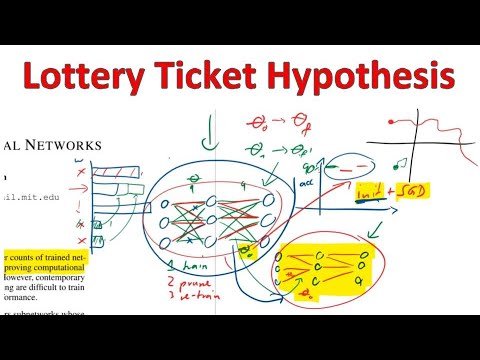Stunning evidence for the hypothesis that neural networks work so well because their random initialization almost certainly contains a nearly optimal sub-network that is responsible for most of the final performance.
Abstract:
Neural network pruning techniques can reduce the parameter counts of trained networks by over 90%, decreasing storage requirements and improving computational performance of inference without compromising accuracy. However, contemporary experience is that the sparse architectures produced by pruning are difficult to train from the start, which would similarly improve training performance.
We find that a standard pruning technique naturally uncovers subnetworks whose initializations made them capable of training effectively. Based on these results, we articulate the “lottery ticket hypothesis:” dense, randomly-initialized, feed-forward networks contain subnetworks (“winning tickets”) that – when trained in isolation – reach test accuracy comparable to the original network in a similar number of iterations. The winning tickets we find have won the initialization lottery: their connections have initial weights that make training particularly effective.
We present an algorithm to identify winning tickets and a series of experiments that support the lottery ticket hypothesis and the importance of these fortuitous initializations. We consistently find winning tickets that are less than 10-20% of the size of several fully-connected and convolutional feed-forward architectures for MNIST and CIFAR10. Above this size, the winning tickets that we find learn faster than the original network and reach higher test accuracy.
Authors: Jonathan Frankle, Michael Carbin
Links:
YouTube:
Twitter:
BitChute:
Minds:
source

